23 July 2024
Novel Approaches to Getting a Good Night’s Rest
At the recent Wellness and Sleep Introductory Workshop, Mr Eric Lim (Arts & Social Sciences ’14) shared mindfulness techniques with fellow alumni to help them achieve peaceful slumber.
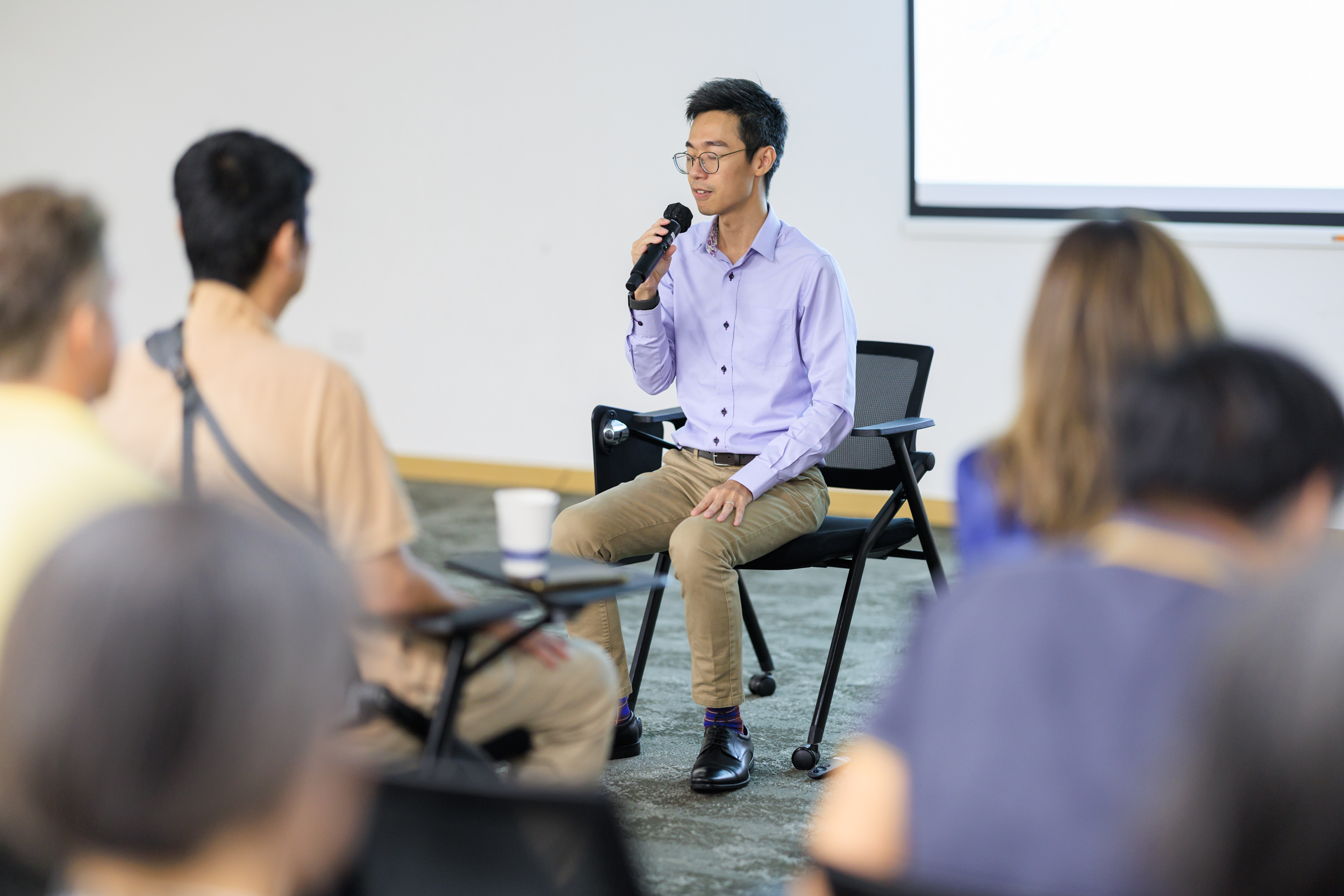
Mr Eric Lim conducting a mindfulness practice for NUS alumni during a Wellness and Sleep Introductory Workshop.
When he was in his final year at the National University of Singapore (NUS), Mr Lim discovered mindfulness practice. His then-professor, Dr Gregor Lim-Lange, introduced him to mindful psychology, sparking his deep interest in the subject.
That same year, Mr Lim’s father suffered a stroke, thrusting him into the role of primary caregiver at the age of 23. “My father had three strokes. His second stroke in 2015 and subsequent vascular dementia diagnosis in 2016 led to my having severely disrupted sleep,” Mr Lim shared. “His disorientation between day and night meant he would call for me in the middle of the night."
These experiences, at NUS and at home, fuelled his passion for improving sleep wellness through practising mindfulness.
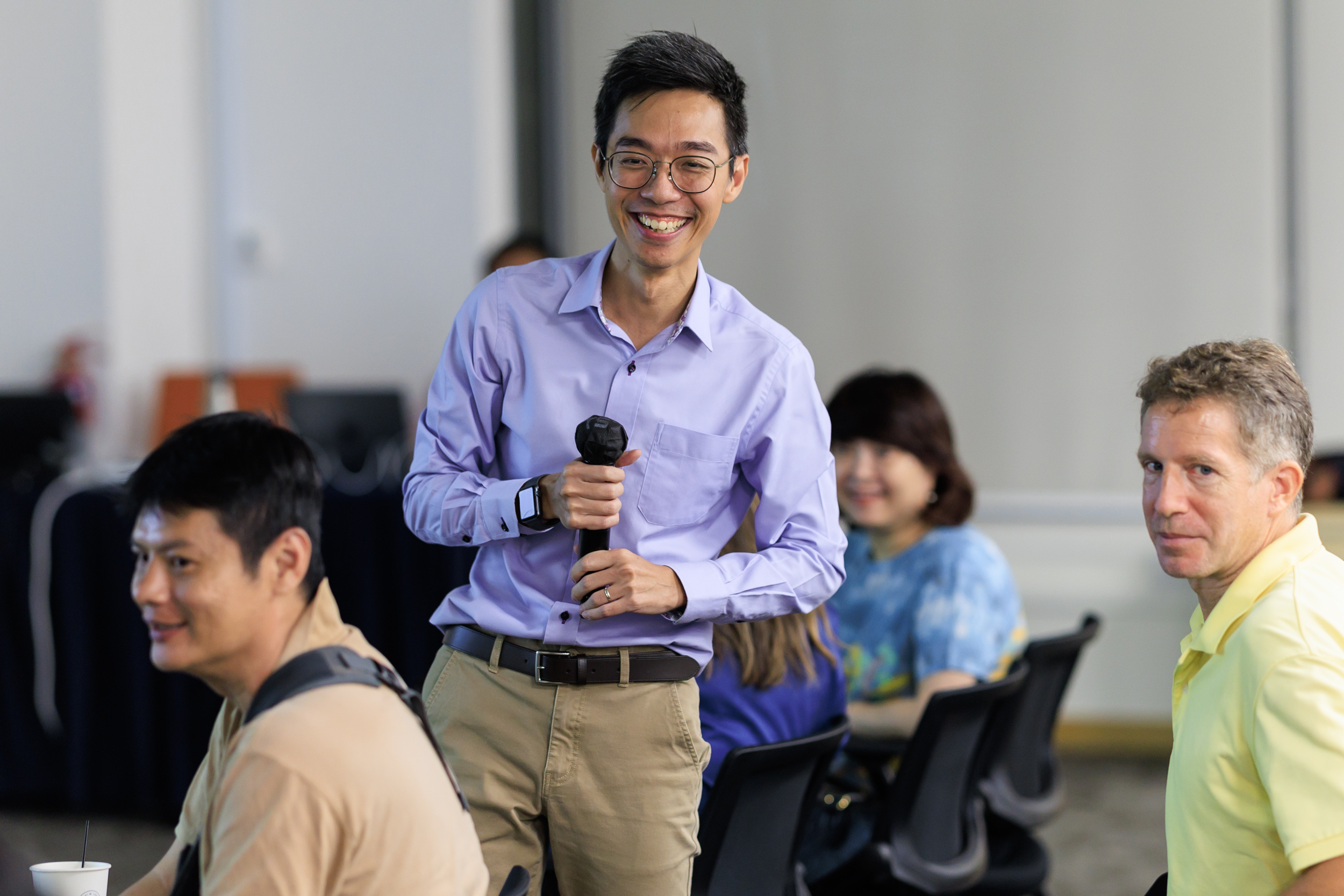
Mr Lim has impacted over 10,000 individuals in his career, which focuses on mindfulness and self-awareness.
Today, Mr Lim is a certified Mindfulness-Based Stress Reduction teacher, a credential granted by the Mindfulness Center at the Brown University School of Public Health. From 2014 to 2023, he led curriculum development and research on mindfulness at Brahm Centre, where he served as Head of Systems. He has impacted over 10,000 individuals throughout his career, delivering mindfulness courses, workshops and talks across various sectors, including education, government, finance and social services.
He also runs Somnus Sleep Wellness, a sleep disorder centre in Singapore, which he co-founded with sleep psychologist Dr Julian Lim – a former Assistant Professor at Duke-NUS Medical School and the NUS Yong Loo Lin School of Medicine.
On 26 June, Mr Lim made his way back to his alma mater and, together with Dr Lim, delivered a Wellness and Sleep Introductory Workshop at the Shaw Foundation Alumni House.
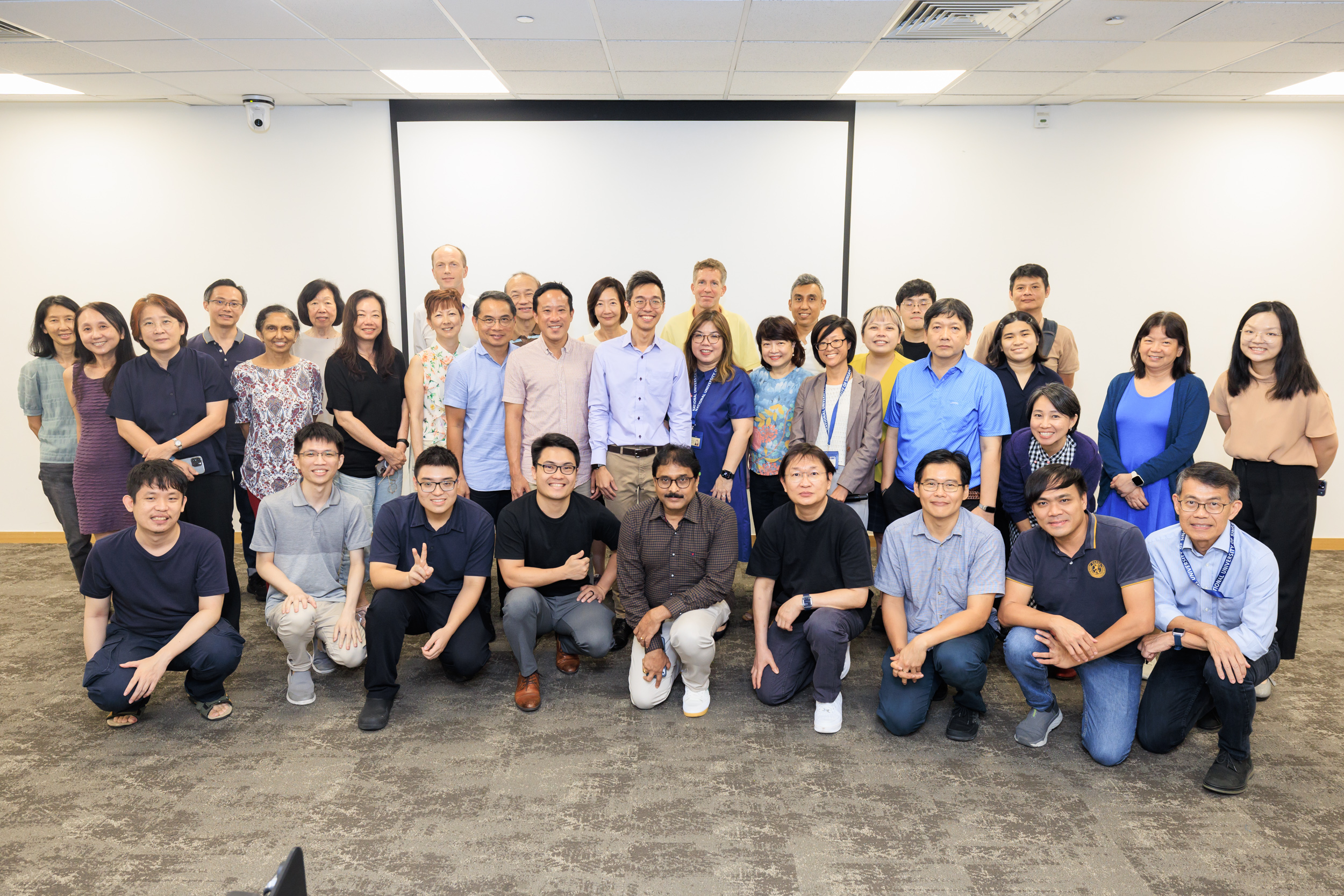
NUS alumni at the Wellness and Sleep Introductory Workshop on 26 June.
They guided attendees through a body scan mindfulness practice, addressing somatic and cognitive symptoms that can hinder sleep. Dr Lim also shared practical tips for managing nighttime arousal, emphasising the importance of avoiding stimulating activities before bed, listening to your body and practising relaxation exercises like progressive muscle relaxation before sleep.
Mindfulness for Better Sleep
During the session, Mr Lim, a Psychology graduate, cited mindfulness practices that helped him navigate the tough times of caring for his father. “For instance, the body scan technique helped me stay grounded and present, rather than being overwhelmed by anxiety,” he shared. A body scan helps people become more aware of their body sensations. It involves mentally scanning their body from head to toe, noticing any areas of tension or discomfort. This practice can help people to relax, reduce stress and feel more present.
Mr Lim also shared that the meditation allowed him to be more compassionate towards himself during moments when he felt inadequate as a son or caregiver. This involved generating kind intentions towards himself and others, which helped to foster feelings of compassion and empathy and helped to reduce negative emotions. By incorporating these practices, Mr Lim became more aware of his unhealthy thoughts — such as worrying about his father's condition — and learned to manage them more effectively.
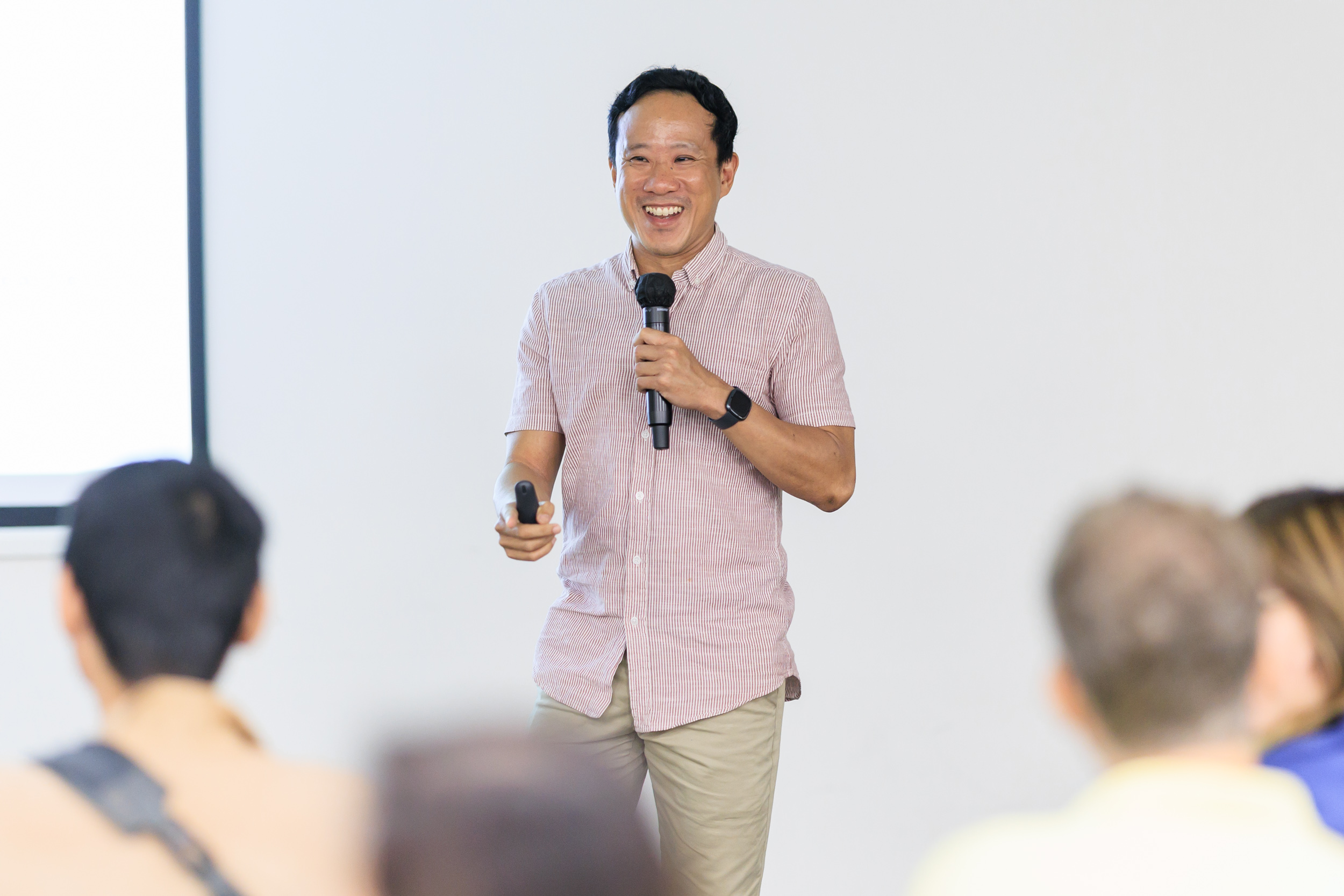
Dr Julian Lim, a former Assistant Professor at Duke-NUS Medical School and the NUS Yong Loo Lin School of Medicine, has done research showing that mindfulness significantly improves sleep quality.
To learn more about how mindfulness can improve sleep, Dr Julian Lim was involved in conducting a trial involving 120 older adults in Singapore. The study revealed that mindfulness practice significantly improved sleep quality, comparable to those receiving cognitive behavioural therapy.
“Mindfulness is effective in preventing insomnia relapse, which affects about 10 percent to 15 percent of the population in Singapore. Regular mindfulness practice teaches us not to strive for specific outcomes. Paradoxically, letting go of any outcome makes it easier to achieve the desired results,” Dr Lim explained.
NUS alumnus Mr Ivan Popov (Business ’22) gained valuable insights from the session. Having struggled with insufficient sleep, Mr Popov had sought to find a solution to his problems. “After attending this workshop, I learned not to be judgmental towards myself and to avoid dwelling on my sleep issues,” he shared. “I also realised the importance of setting aside worry time a few hours before bed, instead of taking my worries with me to sleep.”
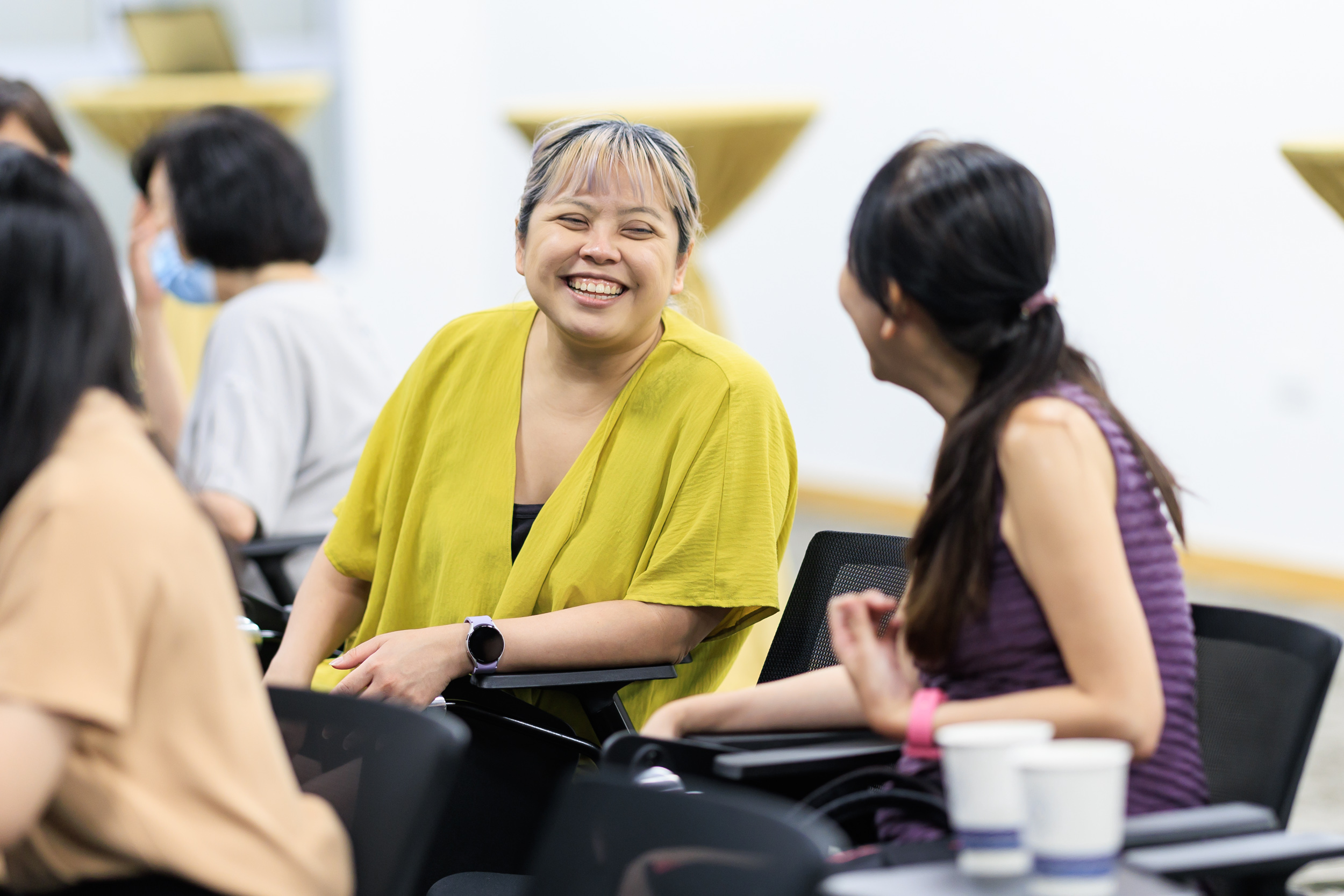
NUS alumna Ms Jennifer Ng thoroughly enjoyed the workshop, where she learned how to calm her mind.
Ms Jennifer Ng (Science ’04) added that she had learned how to use body scan practices to calm her mind. “It was also interesting to learn about cognitive symptoms, so I can try not to let them affect my sleep," she said.
Types of Symptoms that could Affect our Sleep
Somatic Symptoms
◦ Racing heart
◦ Nervousness
◦ Shortness of breath
◦ Tense muscles
◦ Feeling cold
◦ Stomach upset
◦ Perspiration
◦ Dry mouth/throat
Cognitive Symptoms
◦ Worry
◦ Thinking about the events of the day
◦ Mental alertness
◦ Racing thoughts
◦ Depressing/anxious thoughts
◦ Distraction by sounds/noise
To access exclusive discounts for NUS alumni from Somnus Sleep Wellness, check out our AlumPERKS page.
Text by Audrina Gan. Photos by Lionel Lin.